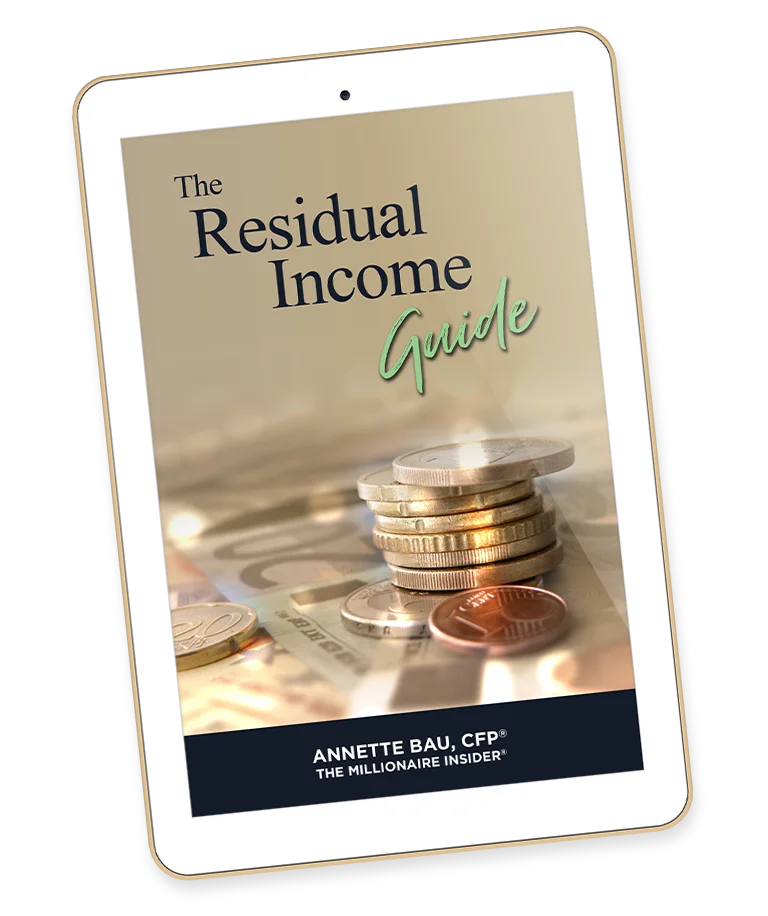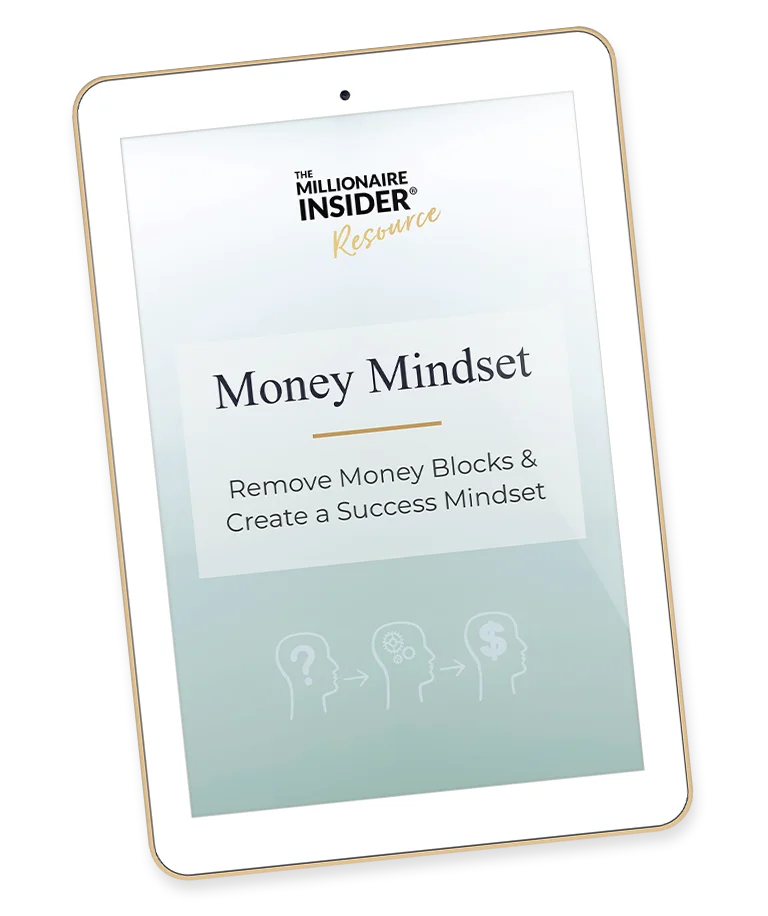Understanding and Leveraging Compound Interest for Long-Term Financial Growth
In the world of personal finance, a powerful concept that can accelerate your journey toward financial success and freedom is compound interest.
Compound interest allows your savings to multiply and build wealth for your future, even with small, consistent investments.
One way to create more long-term financial security is to incorporate compound interest into your financial strategy.
In this article, we will delve into the mechanics of compound interest, its significance in establishing a solid financial foundation, and, most importantly, how to use it to pave the way for more long-term growth.
Disclosure
The Millionaire Insider® copyrights all materials and intellectual property.
This information is for educational purposes only. It is not intended to replace the advice of any advisor or specialist, nor to provide investment, financial, tax, retirement, planning, or healthcare advice.
Always consult with a qualified professional before making any financial decisions or changes.
The Magic of Compound Interest: How Does it Work?
Once you know what compound interest is, you need to understand its basic mechanics.
Compound interest is the process of earning interest not only on the initial amount invested but also on any interest already earned. In simpler terms, the interest you gain is added to the principal, and subsequent interest is calculated based on the combined total.
Picture it as “interest on interest” – the interest earned in each period is reinvested, contributing to the growth of your investment. This compounding effect leads to exponential growth over time.
Let’s illustrate this with an example: 
If you invest $10,000 in an asset offering a 5% annual interest rate, with interest compounded annually, you will earn $500 in interest for the first year. At the end of that year, your investment would grow to $10,500.
In the second year, the 5% interest rate applies to the new balance of $10,500, resulting in $525 in interest. At the end of the second year, your investment would reach $11,025. This process continues, and over time, the growth becomes more substantial due to the accumulation of interest on both the initial investment and the previously earned interest.
Why Compound Interest Matters
The significance of compound interest lies in its ability to generate exponential growth over the long term. It is often called the “avalanche of investing” because once it gains momentum, it becomes a powerful force that propels your finances forward. The longer your money remains invested, the more pronounced the impact of compound interest becomes.
Making Compound Interest Work for You: Six Strategies

Start Early
Investing or saving as soon as possible is the key to maximizing compound interest. The longer your money has to compound, the greater the growth potential.
Contribute Regularly
Establish a systematic investment or automatic savings plan to contribute fixed amounts regularly. Consistent contributions lead to more significant compounding over time.
Reinvest Earnings
Consider reinvesting dividends and principal, and interest earned from your investments. Reinvesting allows these earnings to compound and generate additional returns, accelerating the growth of your investment.
Choose Investments with Compound Growth
Look for assets that have historically exhibiting compound growth, such as stocks, mutual funds, index funds, etc. 
If you don’t have a strategy, or you are not sure your retirement plan is in order, click here:
Be Patient and Stay Invested
While many people ask the question: What is compound interest, most do not realize the psychology that impacts it, such as patience.
This requires that you avoid making frequent changes to your investment strategy based on short-term market fluctuations. And that you allow your investments to benefit from the compounding effect over the long term.
Utilize Tax-Advantaged Accounts
Tax-advantaged accounts like IRAs, 401(k)s, or HSAs in the US can be great vehicles for growing your money.
In Canada, examples include RRSPs or TFSAs, which offer tax benefits to enhance the compounding of your investments.
Remember, while compound interest is a powerful tool for long-term financial growth, it does not guarantee high returns and doesn’t eliminate investment risks. Make informed decisions based on your circumstances and risk tolerance, and always consult a qualified advisor.
If you need support creating an effective plan, click here.
Examples of Compound Interest

Compound interest is a powerful financial concept that can lead to significant long-term growth. Let’s explore a couple of examples to illustrate how compound interest works:
Example 1: Savings Account
Suppose you deposit $1,000 into a savings account with an annual interest rate of 4%. The interest is compounded annually.
After the first year, you would earn $40 in interest (4% of $1,000), and your account balance would become $1,040.
In the second year, the 4% interest rate is applied to the new balance of $1,040, resulting in $41.60 in interest. Your account balance would now grow to $1,081.60.
This process continues, and you can see that the interest is calculated each year based on the increasing balance. Over time, the account balance will continue to grow at an accelerating rate due to the compounding effect.
Example 2: Investment
Let’s consider an investment scenario. Suppose you invest $5,000 in a stock that historically provides an average annual return of 8%. The interest is compounded annually.
After the first year, your investment would grow by 8%, resulting in a gain of $400. Your total investment value would become $5,400.
In the second year, the 8% return is applied to the new value of $5,400, leading to a gain of $432. Your investment would now be worth $5,832.
As with the savings account example, the compounding effect continues to snowball. Over time, the investment’s value would increase significantly due to the consistent reinvestment of earnings.
Example 3: Retirement Savings
Let’s consider the impact of compound interest on retirement savings. Suppose you start contributing $200 monthly to a retirement account at age 25. The account earns an average annual return of 6%, compounded monthly.
By the time you reach age 65 (40 years), you will have contributed $96,000 ($200/month * 12 months/year * 40 years).
Due to the compounding effect, your retirement account would grow to approximately $372,000, assuming an average 6% annual return. The compounding effect greatly magnifies the growth of your retirement savings over time.
These examples demonstrate how compound interest can work in various financial scenarios, leading to considerable growth and wealth accumulation over the long term. By starting early, making regular contributions, and allowing time for the power of compounding to take effect, you can harness its benefits to achieve your financial goals.
While compound interest can be a powerful tool for growing wealth, there are situations where it can work against you, leading to financial challenges, especially in the case of debt. Most credit card companies charge high compounding interest, making it difficult to pay off the debt. If you find yourself under the weight of credit card debt, it’s crucial to take action to eliminate it.
Examples of When Compound Interest Can Work Against You
Credit Card Debt Example

Credit card companies often charge high compounding interest rates on outstanding balances. If you carry a balance on your credit card and only make minimum payments, the interest will compound, making it increasingly difficult to pay off the debt.
As the balance grows, so does the interest, creating a cycle that can lead to a substantial debt burden.
For example, if you have a credit card balance of $5,000 with an annual interest rate of 20%, your monthly interest would be approximately $83.33.
If you only make minimum payments (assume 2% of the balance or $25, whichever is higher), it could take decades to pay off the debt. You may pay several times the original amount due to compounding interest.
High-Interest Loans
Like credit card debt, other high-interest loans, such as payday loans or certain personal loans, can also work against you with the compounding effect.
These loans often come with high interest rates, making paying off the principal amount challenging. Often, this leads to a cycle of debt.
Overdraft Fees
Overdraft fees charged by banks can also compound, especially if you don’t promptly cover the overdraft. Over time, these fees can add up and make it harder to get your finances back on track.
If you need support with your money mindset, click here:
Investment Losses
While compound interest can amplify gains in investments, it can also magnify losses. If you invest in assets that decline in value, the compounding effect will work against you, eroding your investment at a faster rate.
For instance, if you invest $10,000 in a stock that loses 20% of its value in one year, your investment will decrease to $8,000.
In the second year, if the stock loses another 20%, your investment will decline to $6,400—the losses compound, resulting in a more substantial reduction in value.
High-Interest Payday Loans
Payday loans typically come with exorbitant interest rates. If the loans are not repaid quickly, the interest can compound rapidly, making it challenging to escape the debt trap.
Knowing these scenarios where compound interest can work against you is crucial.
In addition, you want to make informed financial decisions to avoid falling into debt traps or risky investment situations. Proper financial planning, budgeting, and responsible borrowing can help prevent the negative impact of compound interest.
Conclusion – “What is Compound Interest?”

Compound interest is an important tool for achieving your financial goals.
Once you understand what is compound interest, you need to identify opportunities to use it to your benefit. This includes understanding the compounding frequency, also referred to as compounding periods. Examples include daily compounding. You also need to understand the rate of return and how interest accrues on your savings accounts and investments.
And you need to understand compound interest calculations and how they can work against you so you can avoid problems.

